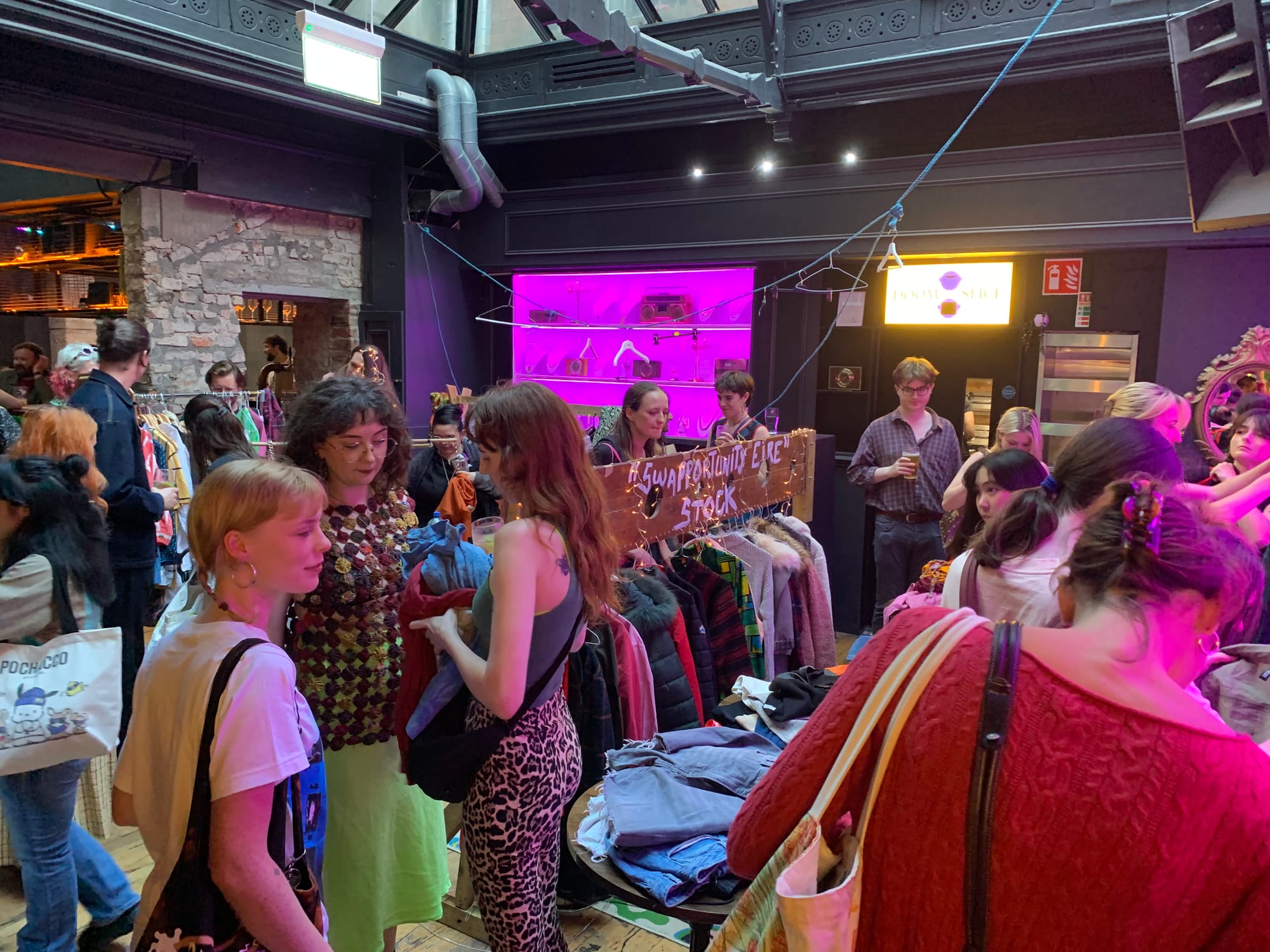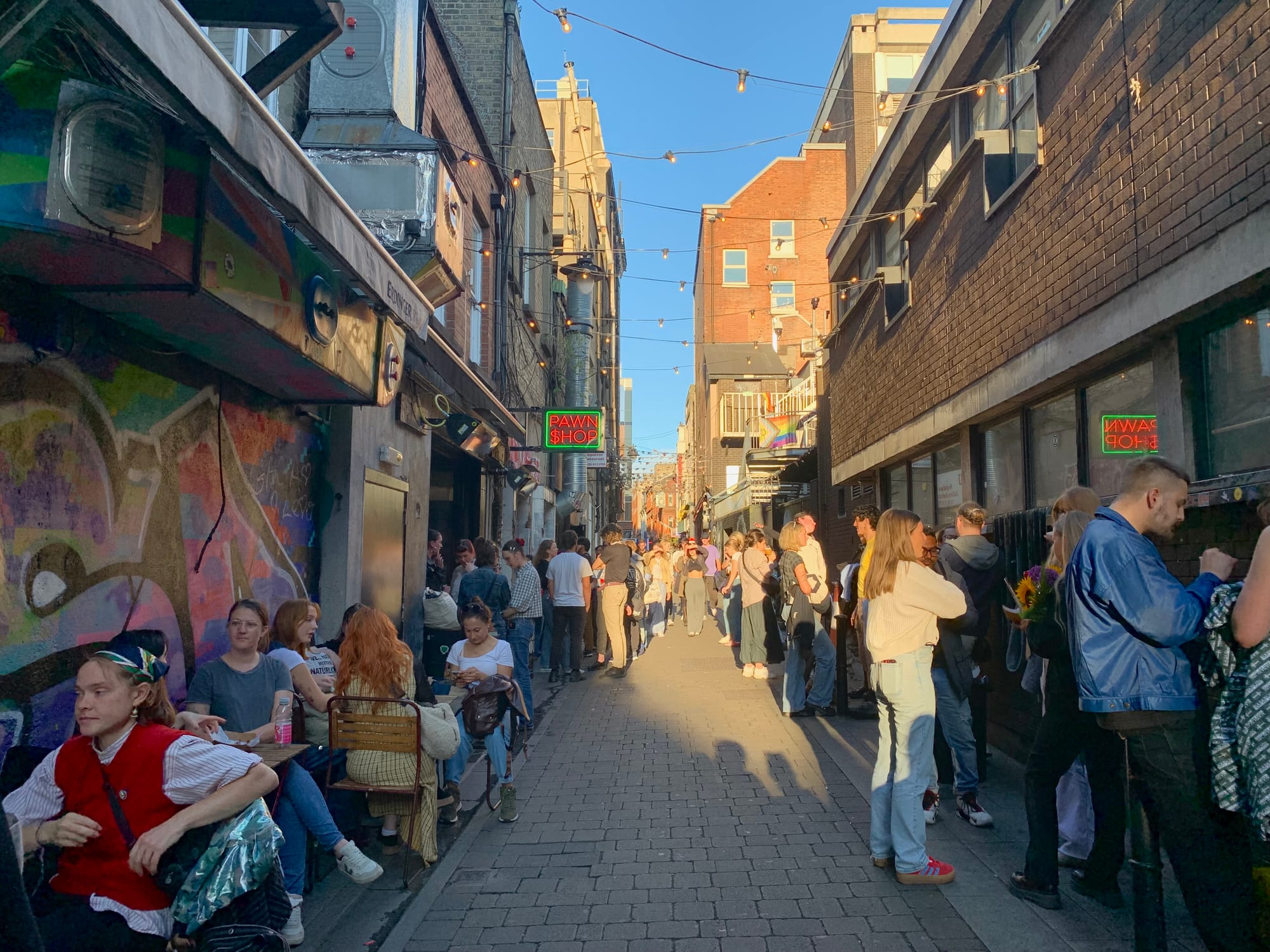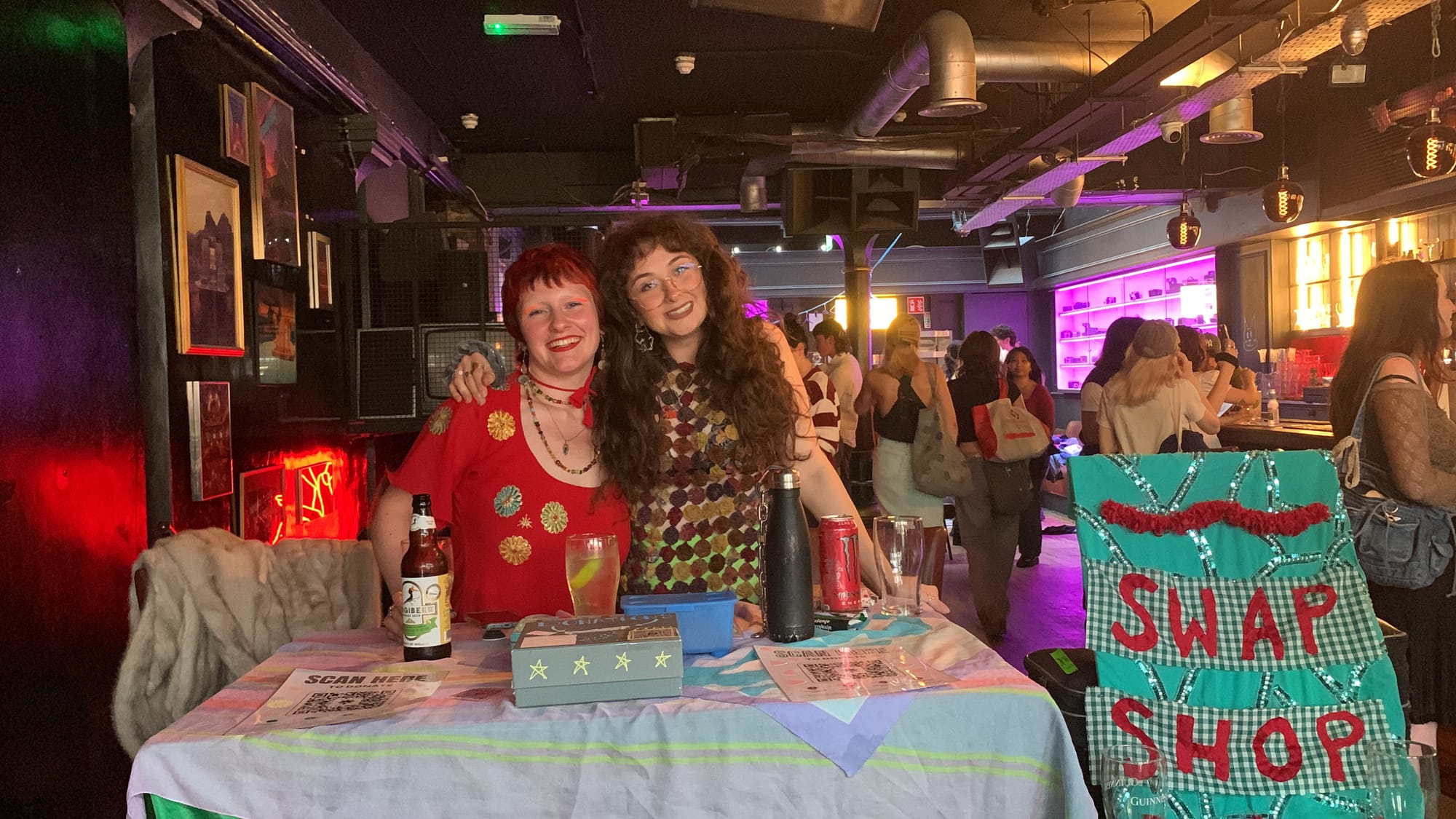What’s the best way to tell area residents about plans for a new asylum shelter nearby?
The government should tell communities directly about plans for new asylum shelters, some activists and politicians say.
“If you see a stylish person with a big bag of clothes, keep an eye on them, see what they’re putting out,” says co-organiser Orla O’Leary.

At the entrance to Pawn Shop on Tuesday, 27 August, people dropped off canvas bags and volunteers sorted through donations.
Inside the building on Dame Street – usually a bar and music venue – visitors picked through second-hand clothes and accessories.
The piles hid small treasures: a SponegBob wallet, a throw pillow embroidered with “cad é an scéal Santa?” (what’s up Santa?), a tiny pink puffer vest.
Orla O’Leary and Jess Ryan, who co-organised this event, began to run clothes swaps at Dublin City University as part of the college’s Sustainable Living Society.
The weekly meet-up was social and encouraged their peers to avoid fast fashion. They held it on Wednesdays so people could grab outfits for end-of-week nights out, said O’Leary. “We called it a communal wardrobe for DCU.”
Tuesday’s event was the third O’Leary has run this year, open to all in the city. They take place every two to three months, with the next one planned for around Halloween.
Other swap shops have a token system, meaning people can only take as many items as they donate. But they don’t do that, says O’Leary. “We get donated way more clothes than we give away. So I’m like, take as much as you want.”
Dublin City Council has been looking to encourage the creation of swap shops all over the city. Last month, it gave funding under the Climate Action Fund to community groups in Raheny, Sandymount, and Ballymun to support more exchanges.
The council has also backed Change Clothes’ “swap kit”, a collection of resources that those looking to run their own events can borrow. And, councillors have called on officials to look at whether it can set up permanent “swap shops” around the city – like those in Copenhagen.
But finding spaces to run events is still a challenge, says O’Leary, whose pop-up event was organised independently from the council.


After graduation, O’Leary lived in Lisbon for two years, from 2021 to 2023.
Setting up clothes exchanges there was easier, she says, as she could host them in public parks or a free space provided by one of the city’s cultural associations, arts and cultural collectives subsidised by the Portuguese government.
Here, the colder weather makes outdoor events more difficult, she says. And, “if we were to rent out [a venue], the going rate you could get for a lot of places is like 200 quid”.
O’Leary ran two swaps earlier this year in Daylight, a community-run cultural space in Glasnevin.
She had asked around on Instagram for somewhere closer to the city centre, and a staff member at Pawn Shop offered the venue for free, she says.
Ryan, who has been living in Barcelona, came back to Dublin to help O’Leary with the event. The two took turns greeting people, learning names, and making sure it all ran smoothly.
That social side of the swap is important, says O’Leary, as people can bond over the items they’ve given away rather than selling to a stranger online.
“People can find it really hard to let things go, but [at a swap] you can then make friends with that person and see them wearing it,” she says.
At Tuesday’s event, O’Leary and Ryan suggested people donate €5 to €10 either to a donation box or online via a QR code. Proceeds were for the Bureij Association, a charity that provides rehabilitative services to those with disabilities in Gaza.
Inside, Stephanie Gamarra, a hairstylist visiting from Barcelona, worked in front of a mirror that promoted “FRINGE TRIMS FOR PALESTINE”.


As the night went on, some people abandoned their searches. They chatted in small groups, or ordered drinks from the bar. Others kept on task. Donations flowed in.
It helps to have a keen eye, said O’Leary. “If you see a stylish person with a big bag of clothes, keep an eye on them, see what they’re putting out.”
The spaces between clothing racks grew crowded. People spilled out into the laneway behind the building to eat pizza and drink in the sunshine. DJs played, and towards the end of the night, people gathered around the decks to dance.
O’Leary hopes to host the next one in The Celt on Talbot Street, accompanied by trad music. “That’s it really,” she said. “Just want to have a bit of craic.”
Get our latest headlines in one of them, and recommendations for things to do in Dublin in the other.